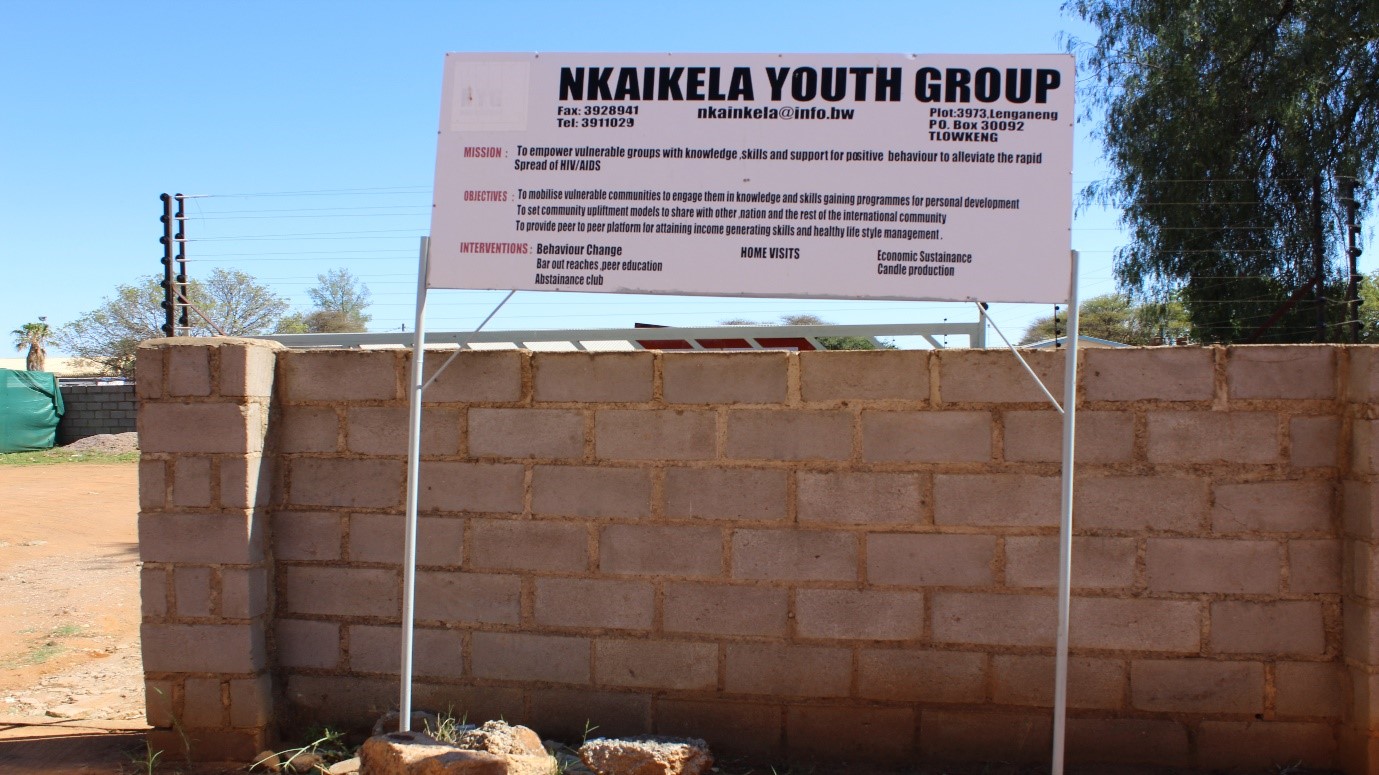Written by Neo Monnapula, Monitoring & Evaluation Officer, Nkaikela Youth Group, Botswana
Nkaikela Youth Group is a nongovernmental organization that serves female sex workers 18 years and older. The organization is currently supported by LINKAGES to provide HIV prevention, care, and treatment services.

In Botswana, HIV prevalence is 18.5 percent; however, among female sex workers (FSWs), prevalence exceeds 61 percent. A 2012 behavioural and biological surveillance survey revealed that, more often than not, FSWs experience stigma and discrimination from health care providers, often leading them to shy away from accessing HIV prevention, care, and treatment services. I recall a conversation I recently had with a Nkaikela Youth Group patient who was discouraged from seeking HIV services:
“I went to a local clinic and the nurse [stigmatized me]. I will no longer go there because the nurse threatened to report me to the police if I [have] an STI.”
At Nkaikela Youth Group, we provide key population (KP)-specific services for FSWs 18 years and older; this means that we assess the health needs of FSWs and provide stigma-free services based on those individual needs. We consult with FSWs one-on-one and ask what they want most from their health care providers and what needs to change in order for them to feel welcome in local clinics.
Confidentiality is paramount. Due to the stigma and discrimination they so often face, FSWs feel that being able to trust a health worker without fear of being judged or ridiculed makes all the difference in the world. For many of our FSW patients, being able to trust us with their care means that we, too, care about their health and well-being.
“I trust Nkaikela Youth Group with my information because they care about my life. It feels good to be getting services from them. [They] helped me to live again.”

Neo was recognized at IAS 2017 for providing stigma-free services to FSWs.
Together with the LINKAGES project, our Nkaikela Youth Group provides FSWs with important information about HIV prevention, where to go to get tested, and how to access quality care and treatment services from clinics that offer a safe environment for patients. We conduct workshops with health care workers in the community, which include seminars on values clarification and attitude transformation so that health care workers can improve service provision.
FSWs not only experience stigma and discrimination from community members and health care providers; sometimes, they face internalized stigma. Lack of knowledge of their rights – coupled with the naming, shaming, and labelling they face – too often leads to acceptance of violations to FSWs right to health. In response, we form and facilitate FSW support groups to create an enabling environment in which FSWs talk about their experiences, learn about their rights, and develop skills to advocate for themselves when facing discrimination and abuse. Other topics covered in the support groups include the importance of knowing ones’ HIV status, adherence to treatment, and screening and treatment for STIs.
Health services that are free of stigma are critical to reducing HIV among FSWs worldwide, because sex workers are human beings and they, like all people, have the right to access health services.
Neo Monnapula was recently recognized as a global health care champion at the International AIDS Society’s 9th Conference on HIV Science.
